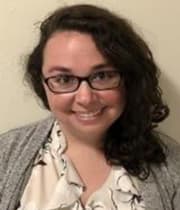Family, friends & Greater Lakes therapist empower Tacoma trans teen

Meet Eli Smith and you’ll undoubtedly catch his infectious smile. The seventh grader’s quick wit, ready laugh and complete confidence are a joy to behold.
Smith began consciously diving into gender identity and expression in fifth grade when he and a classmate researched and presented on LGBTQ+ awareness. During the project, Smith reflected on how he didn’t feel like he fit into a specific gender box, and later began identifying as transgender.
“I’ve thought of myself as trans for a year and a half and have been bisexual since fifth grade,” he shares. “My friends and family have been really supportive. They have really helped me feel safe and that I am worthy.”
Smith has also found an ally in his therapist Kathryn “Katey” Willis, LMHC, LMFT, CCTP. Willis is part of Greater Lakes Mental Healthcare’s school-based services. She meets with Smith one-on-one at his middle school and with the whole family primarily through telehealth.
“When I first came to Katey, one of the first things she asked me was, ‘What are your pronouns, and how can I respect these?’” Smith remembers. “She didn’t assume, and she’s been calling me ‘he/him’ like I told her. I think the reason I was so confident in coming out to certain people was because of her.”
Transgender (including nonbinary) youth living with people who respect their pronouns report lower rates of attempting suicide compared to those living with people who do not respect their pronouns, according to The Trevor Project’s 2023 U.S. National Survey on the Mental Health of LGBTQ Young People.
Willis has also been a help to Smith’s mom and advocate Laura Pedlar.
“It’s a great service to have another adult to support (kids in the local LGBTQ+ community),” Pedlar says, tearing up.
For Willis, identity is a common theme she encounters and encourages with her middle and high school clients.
“This relationship with our self and this ability to understand our self, our needs and our feelings and how to express that to the world — that greatly impacts our mental health, our physical health, our functioning in all venues of our life and in our ability to function in society, be successful and sustainable,” Willis explains. “This is not just a ‘silly phase.’ This is a big part of their exploration of who they are in their relationship with their self.”
Celebrating Pride Month
Every June we celebrate Pride Month, honoring the 1969 Stonewall Uprising and lifting up members of our LGBTQ+ communities.
In this spirit, Smith offers the following words: “Even if people tell you what you think or feel is wrong, it doesn’t mean it is,” he says. “You can love who you wanna love, be who you wanna be. If they think it’s weird or wrong, that’s their opinion. You don’t have to be what they want you to be.”
From Willis’ perspective as an emotionally focused and person-centered therapist, she wants readers to know the relationship they have with themselves is their foundational, fundamental relationship.
“To be able to nurture that in a way that feels authentic and just beautiful for you is going to set you up for a life of thriving,” she says.
Significance of donor funding
The Trevor Project’s 2023 National Survey found that 41 percent of LGBTQ+ young people seriously considered attempting suicide in the past year — and young people who are transgender (including nonbinary) and/or people of color reported higher rates than their peers.
Equitable and supportive programming can be part of the solution, and Willis and Smith would like to thank MultiCare Behavioral Health Foundation donors who help fund a variety of strategies to meet kids and adolescents where they are.
“This is such important work and such unique work we do in the schools and in the venues that people are living their lives,” Willis says. “To support access to care is absolutely an incredible thing.”
Smith, too, sees the impact of community generosity.
“You are helping kids grow,” he shares. “You are helping kids find their voices and figure out what they want out of their lives or what they want in their relationships.”
What's next
- Help teens access behavioral health care by donating to MultiCare Behavioral Health Foundation
- Learn about Greater Lakes Mental Healthcare’s school-based services
- Other services offered by Greater Lakes Mental Healthcare




